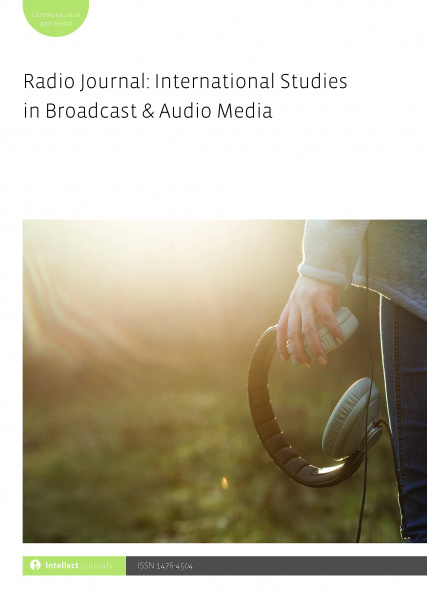-
f Radio and popular journalism in Britain: Early radio critics and radio criticism
- Source: Radio Journal:International Studies in Broadcast & Audio Media, Volume 13, Issue 1-2, Oct 2015, p. 23 - 36
-
- 01 Oct 2015
Abstract
This article explores the way British radio critics began to write about radio in the national press during the 1920s and the early 1930s. I will argue that the way radio came to be covered at this time was a result of the way critics were situated in relation to the needs of and interactions between broadcasters, the press and the existing dominant cultural hierarchy of the time. In response to such tensions many critics began to adapt existing forms of coverage associated with theatre, film and book reviewing to this new aural medium, approaches already known to the editors, the public and themselves. Because of this, most critics came to focus on radio programmes as the text to critique and write about, using a form of impressionism. Others, however, began to create a more contextual approach, writing about radio more as a mass medium, created by broadcasting organizations such as the BBC. As this coverage began to appear in the national newspapers it came to play an important role in the way radio became accepted as part of popular culture.


